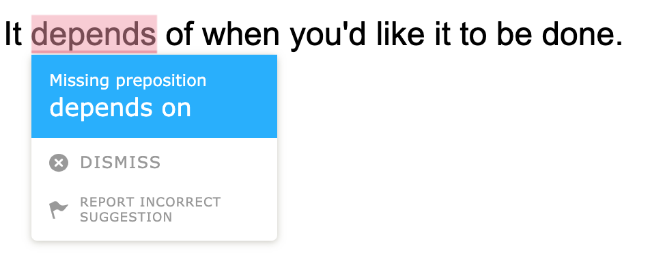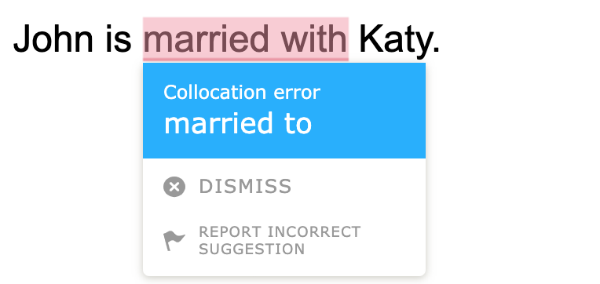7 common mistakes when using prepositions in the English language and how to avoid them

In English, prepositions are used to link people, objects, time, and places within a sentence. Usually these are short words like at, for, in, on and to, which, despite their size, play an important role, and using them correctly is not always easy.
I found an interesting post with the analysis of common mistakes when using prepositions, and prepared its adapted translation.
')
1. Arrive at vs. Arrive in vs Arrive to
If in the proposal someone arrives somewhere - for example, in a city, country or some other place - then you need to use the phrase "arrive at".
Examples:
Bad : When we arrived to the stadium, the game had already started.
Good : When we arrived at the stadium, the game had already started.
2. Use with days and dates
In the case of a date, the preposition on is used in English.
Example:
It's my birthday on June 2nd.
However, if we are not talking about a specific date, and you want to highlight, for example, the month in which you have a birthday, then it will be correct to use the preposition in .
Examples
:Bad : My birthday is on July!
Good : My birthday is in July!
3. Depends on
Many people for whom English is not native, make mistakes when using the construction of "depends on". When you need to describe a dependency, the preposition on is used .
Examples:
Bad : It depends on it.
Good : It depends on it.

4. at night
When something happens in the morning, in the afternoon or in the evening, in English the construction is used in the morning / afternoon / afternoon. But when describing nightly events, the preposition at is always used.
Examples:
Bad : Claire often goes out in the night.
Good : Claire often goes out at night.
5. for + time period
For descriptions of time periods, the preposition for is used :
Examples:
Bad : I've been working for this company since three years.
Good : I've been working for this company for three years.

At the same time, to describe a specific time use since :
Examples:
I have lived in Boston since March.
We have not talked since our last meeting.
6. married to
In the case when we want to describe a person’s marital status, it is correct to use the phrase is married to - with the preposition to .
Examples:
Bad : John is married with Katy.
Good : John is married to Katy.

If we are talking about plans to get married, then the preposition to is also used here:
Peter friend is getting married for next month.
At the same time, people can get married and in general without any pretexts.
Good: Wendy is marrying her fitness coach.
7. Ask + preposition
Another difficult point is the use of prepositions with the word ask in cases where there is also a mention of a person or an object to which the verb action is directed.
Examples:
Bad : I asked to get this done.
Good : I asked Tom to get this done.
Important: “to” is used before the verb, not after the “ask.”
Source: https://habr.com/ru/post/448584/
All Articles